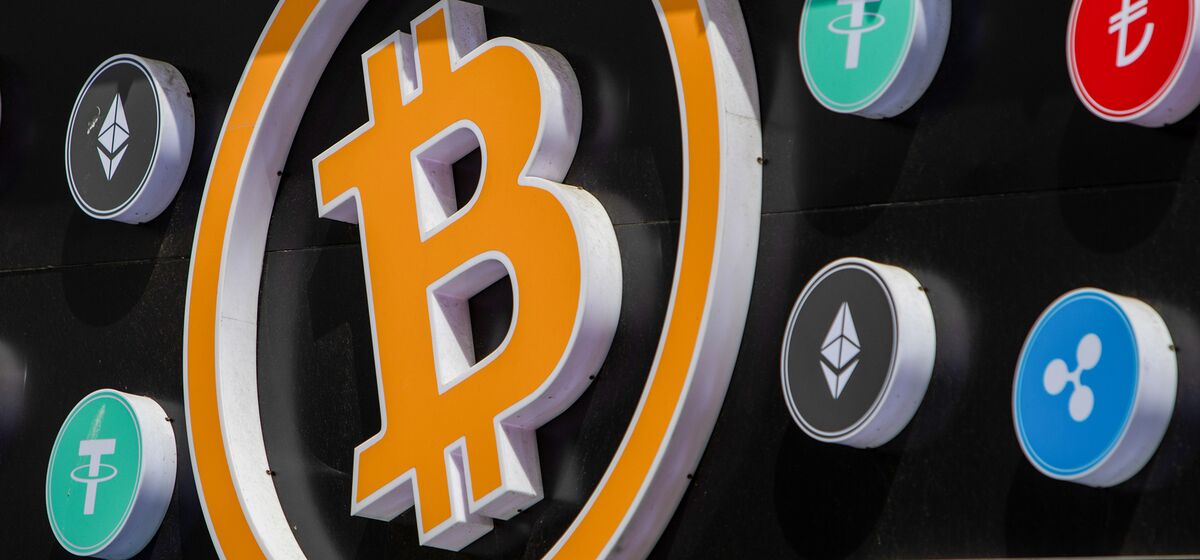Cryptocurrencies offer a lifeline by providing a means for the unbanked and underbanked to access financial services.
Introduction
The global landscape of cryptocurrency adoption is evolving rapidly, and nowhere is this transformation more evident than in developing countries. Traditional financial systems in these nations have often faced challenges such as limited access to banking services, volatile local currencies, and high remittance costs. Cryptocurrencies, with their promise of financial inclusion, borderless transactions, and potential for economic empowerment, are gaining ground as a viable alternative. This article explores the promising trends and implications of cryptocurrency adoption in developing countries, with a specific focus on Brazil and El Salvador, and how innovative projects like Decred are playing a role in shaping this landscape.
The Drive for Financial Inclusion
In developing countries, a significant portion of the population lacks access to traditional banking services. According to the World Bank, approximately 1.7 billion adults remain unbanked globally, and the majority of them reside in developing regions. Cryptocurrencies offer a lifeline to these underserved populations by providing them with access to a decentralized financial system. Anyone with a smartphone and an internet connection can participate in the cryptocurrency ecosystem, opening up a world of financial possibilities.
Cryptocurrency Adoption in Brazil
Brazil, the largest country in South America, is witnessing a growing cryptocurrency adoption trend. The reasons behind this surge are multifaceted. One key factor is the country's economic instability, with a history of hyperinflation and currency devaluation. Cryptocurrencies like Bitcoin, known for their deflationary nature, serve as a hedge against currency depreciation. As a result, more Brazilians are turning to cryptocurrencies to protect their wealth.
Moreover, remittances play a crucial role in Brazil's economy, with millions of Brazilians living abroad sending money back home. Traditional remittance services charge hefty fees, which can significantly reduce the funds received by recipients. Cryptocurrencies offer a cost-effective alternative, allowing families to receive more of the money sent to them. This has led to increased adoption of cryptocurrencies like Bitcoin and Ripple's XRP for cross-border remittances in Brazil.

El Salvador's Groundbreaking Move
In September 2021, El Salvador made international headlines by becoming the first country in the world to adopt Bitcoin as legal tender. This move has been met with both excitement and skepticism. El Salvador, a small Central American nation with a significant number of its citizens residing in the United States, relies heavily on remittances. The government's decision to embrace Bitcoin was driven, in part, by the desire to reduce the cost of remittances and increase financial inclusion for the unbanked population.
The "Bitcoin Law" in El Salvador allows citizens to pay for goods and services using Bitcoin, and it also incentivizes the use of the government-issued Chivo Wallet for transactions. While this groundbreaking move has the potential to boost financial inclusion and reduce remittance fees, it has also raised concerns about the volatile nature of cryptocurrencies and their potential impact on the country's economy.

Africa and Cryptocurrency Adoption
Cryptocurrency adoption in developing countries extends far beyond the borders of Latin America. Africa, with its diverse economies and unique challenges, has also seen a significant surge in the use of digital currencies. This continent of 54 nations has experienced remarkable growth in mobile phone penetration and internet access, laying the foundation for cryptocurrency adoption to flourish.
Africa faces substantial financial inclusion challenges, with a large portion of its population excluded from traditional banking services. Cryptocurrencies offer a lifeline by providing a means for the unbanked and underbanked to access financial services. In countries like Nigeria, Ghana, and Kenya, peer-to-peer cryptocurrency trading platforms have become popular avenues for financial inclusion. These platforms allow users to exchange cryptocurrencies for local fiat currencies, enabling easier remittance transfers, as diaspora communities send money back home without relying on expensive intermediaries.
Many African countries grapple with economic instability, characterized by hyperinflation and volatile national currencies. This has led to citizens seeking refuge in cryptocurrencies like Bitcoin and stablecoins, which are seen as a more reliable store of value. For example, Zimbabwe's experience with hyperinflation led to a surge in Bitcoin adoption as citizens looked for ways to preserve their wealth. Cryptocurrencies have also played a role in protecting assets in countries facing currency devaluation.
Africa's adoption of cryptocurrencies reflects the continent's determination to leverage digital innovation for financial inclusion, economic stability, and entrepreneurship. While challenges related to regulation and consumer protection persist, the potential benefits for Africa's diverse economies are substantial. As cryptocurrencies continue to evolve and mature, their role in shaping Africa's financial future will likely become even more pronounced.

Argentina's Pioneering Path amidst Increasing Inflation
Argentina, a country known for its rich culture and stunning landscapes, has emerged as a fascinating case study in the realm of cryptocurrency adoption within developing nations. In recent years, Argentina has experienced both economic instability and inflation, leading many Argentinians to seek alternatives to preserve their wealth. Cryptocurrency, particularly Bitcoin, has become an attractive option. The country's tech-savvy population, coupled with a growing interest in decentralized finance (DeFi) platforms, has contributed to a surge in cryptocurrency usage. This promising trend not only highlights the resilience of Argentinians in navigating economic challenges but also offers potential implications for other developing countries facing similar financial crises. As Argentina continues to embrace cryptocurrencies, it serves as a beacon of hope, showcasing the transformative potential of blockchain technology in reshaping financial landscapes in emerging economies. However, it also raises important questions about regulatory frameworks, financial inclusion, and the need for education in the responsible use of these digital assets to ensure the long-term stability of this crypto revolution.

The Role of Decred in Developing Countries
In the realm of cryptocurrency projects that aim to empower users in developing countries, Decred stands out as a unique and promising player. Decred, a decentralized and community-driven cryptocurrency, operates on a hybrid consensus mechanism that combines Proof of Work (PoW) and Proof of Stake (PoS). This hybrid approach allows individuals to participate actively in the network's governance and decision-making processes, making it particularly relevant in regions where financial empowerment and inclusivity are crucial.
The DCR Timestamp Service garnered a lot of attention recently because the Brazilian politicians Fernando Haddad and Luis Inácio “Lula” da Silva used it to register their plans of government. Lula was elected the new president of Brazil with 60.341.333 votes.
Their use of the DCR timestamping service got pretty good press coverage in Brazil (in Portuguese):
- https://cointelegraph.com.br/news/lula-and-haddad-register-government-plan-on-blockchain
- https://cointelegraph.com.br/news/lula-wins-the-elections-and-will-be-the-new-president-of-brazil-check-out-what-the-pt-has-already-said-about-bitcoin
- https://portaldobitcoin.uol.com.br/pt-registra-propostas-de-lula-e-haddad-na-blockchain-para-combater-fake-news/
- https://www.moneytimes.com.br/eleicoes-2022-lula-e-haddad-registram-propostas-de-governo-em-blockchain-para-evitar-fake-news/
- https://haddadoficial.com.br/lula-e-haddad-registram-plano-de-governo-em-blockchain-para-evitar-fake-news/
Promoting Financial Sovereignty
Decred's emphasis on financial sovereignty aligns with the aspirations of many in developing countries. In regions where trust in traditional financial institutions may be low, individuals can take control of their financial destinies through Decred. By participating in PoS and staking their DCR, users can actively engage in network governance, propose and vote on protocol upgrades, and earn rewards for their contributions. This empowers individuals to shape the financial systems they participate in, a concept that resonates strongly in developing nations.
Decred's Approach to Privacy
Privacy is another critical aspect of cryptocurrency adoption in developing countries. Decred prioritizes user privacy by minimizing the collection of personal data and providing pseudonymous transactions. In regions where individuals may have concerns about privacy and surveillance, Decred offers a secure and confidential means of transacting value.
Microtransactions and Financial Access
One of the significant barriers to financial inclusion in developing countries is the lack of access to traditional banking services. Decred's low transaction fees and suitability for microtransactions make it a practical solution for financial services in regions where large portions of the population are underserved by banks. Decred's blockchain can facilitate a wide range of financial transactions, from remittances to small-scale lending and peer-to-peer payments, all without the need for intermediaries.
The Implications for Developing Economies
The adoption of cryptocurrencies in developing countries carries profound implications for these economies. It can lead to increased financial inclusion, reduced remittance costs, and improved access to global markets. Additionally, it can promote innovation and entrepreneurship, as individuals gain access to a global financial ecosystem that enables them to launch businesses and access capital more easily.
However, challenges remain. Cryptocurrencies are still relatively volatile, and regulatory frameworks in many developing countries are evolving. Governments and regulatory bodies must strike a balance between protecting their citizens and fostering innovation. Furthermore, educating the population about the responsible use of cryptocurrencies and the associated risks is essential to prevent potential scams and fraud.
Conclusion
Cryptocurrency adoption in developing countries represents a promising trend that has the potential to redefine financial systems, empower individuals, and reduce economic disparities. Brazil's embrace of cryptocurrencies as a hedge against inflation and El Salvador's pioneering move to make Bitcoin legal tender are notable milestones in this journey. As the digital currency space continues to evolve, its impact on Africa's financial future is likely to expand, shaping a more inclusive and technologically advanced financial ecosystem on the continent.
Projects like Decred play a pivotal role in advancing financial inclusion and user empowerment in developing nations. Decred's hybrid PoW/PoS consensus mechanism, commitment to privacy, and focus on user-driven governance offer practical solutions to the unique challenges faced by individuals in these regions.
As the adoption of cryptocurrencies continues to grow in developing countries, it is crucial for governments, organizations, and communities to work together to ensure that this technology is harnessed for the benefit of all citizens. With responsible adoption and thoughtful regulation, cryptocurrencies have the potential to unlock new opportunities and reshape the financial landscape in developing economies.










Comments ()